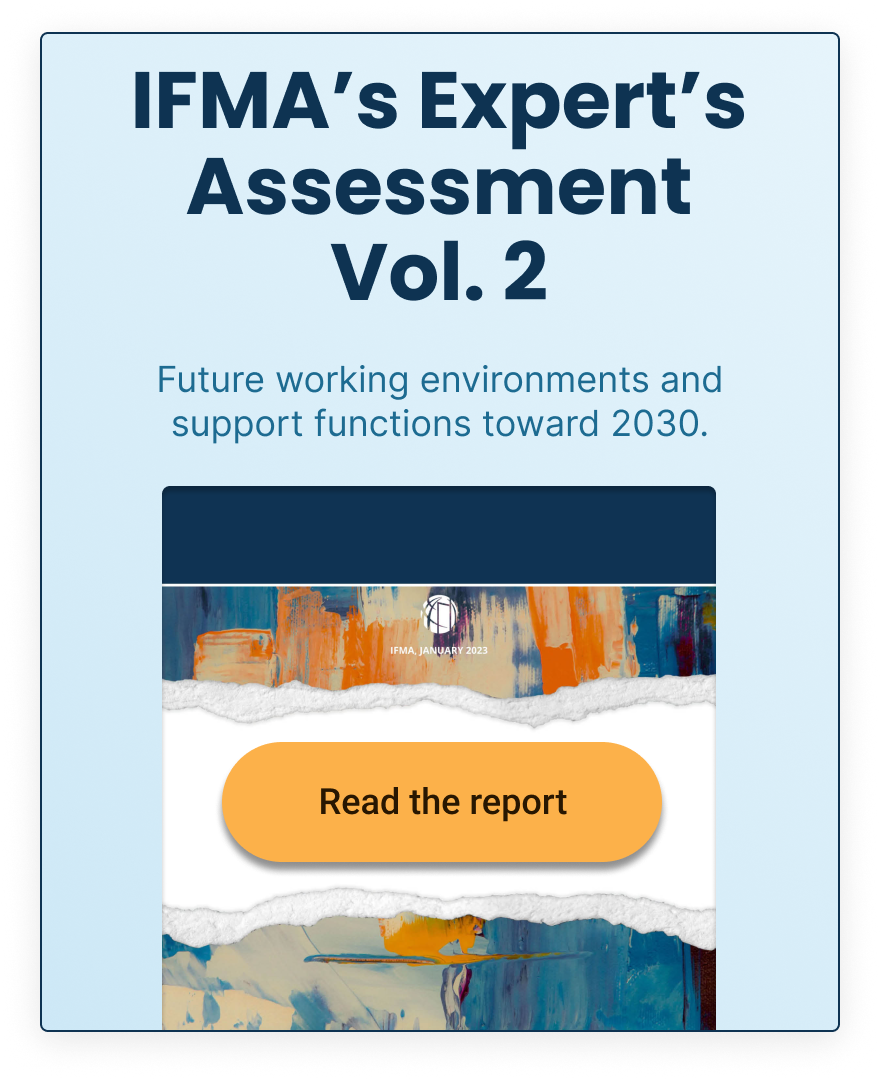Field Service Technology Trends: A Comprehensive Guide to AI Integration

Welcome to the future of field service technology! This eBook will serve as your comprehensive guide to the latest trends in the field service industry. We will delve into the pivotal role of artificial intelligence (AI) in predictive maintenance, explore how machine learning can revolutionize workforce management, and analyze the impact of real-time data analytics on decision-making processes
Field Service Technology Trends: A Comprehensive Guide to AI Integration

Welcome to the future of field service technology! This eBook will serve as your comprehensive guide to the latest trends in the field service industry. We will delve into the pivotal role of Artificial Intelligence (AI) in predictive maintenance, explore how machine learning can revolutionize workforce management, and analyze the impact of real-time data analytics on decision-making processes.
Join us on a journey to understand the synergy between AI and Internet of Things (IoT) devices and gain valuable insights into strategies for seamlessly integrating AI into your existing field service operations.
Are you ready to embrace the future of field service technology? Let’s dive in!
TABLE OF CONTENTS
- The Significance of Predictive Maintenance in Field Service
- How AI Enhances Equipment Reliability
CHAPTER 1:
Understanding the Role of AI in Predictive Maintenance
In the ever-evolving landscape of field service technology, it’s imperative for organizations to move beyond traditional models of maintenance, which has resulted in a more proactive and strategic approach—predictive maintenance. As we navigate the dynamic terrain of field service operations, we’re here to bring a unique perspective on the significance of predictive maintenance and the transformative role of Artificial Intelligence (AI) with Dynamics 365 Field Service.
The Significance of Predictive Maintenance in Field Service
Predictive Maintenance: A Strategic Paradigm Shift
Traditionally, preventive and reactive maintenance models have been the cornerstone of field service operations. However, the limitations of these models, such as unexpected downtimes and higher operational costs, have paved the way for predictive maintenance. This strategic shift is driven by the critical need to minimize downtime, optimize operational costs, and maximize the lifespan of essential equipment and assets.
Benefits of Predictive Maintenance
- Cost Reduction: Predictive maintenance enables organizations to optimize maintenance schedules, avoiding unnecessary downtime and significantly reducing overall operational costs.
- Enhanced Equipment Reliability: Anticipating and addressing potential issues before they escalate ensures that equipment operates at peak performance consistently, enhancing overall reliability.
- Extended Equipment Lifespan: Timely interventions based on predictive insights contribute to prolonging the lifespan of assets, ultimately maximizing the return on investment.
- Improved Safety: Proactive maintenance practices prevent unexpected equipment failures, reducing the likelihood of accidents and enhancing workplace safety.
AI: The Driving Force in Predictive Maintenance
At the heart of the predictive maintenance revolution lies Artificial Intelligence (AI), a technological powerhouse that fundamentally transforms the way organizations manage their equipment and assets.
Leveraging AI for Enhanced Reliability
Advanced Analytics
- AI processes data from various sources, including sensors, equipment logs, and historical records, to identify patterns indicative of potential failures.
- The ability to analyze complex datasets enables AI to recognize subtle changes that may precede equipment malfunctions.
Predictive Modeling
- Machine learning algorithms within AI systems build predictive models based on historical data, enabling accurate forecasts of when maintenance is likely to be needed.
- These models continuously evolve, becoming more precise as they learn from new data inputs over time.
Condition Monitoring
- AI-driven systems continuously monitor the condition of equipment in real-time, providing instant alerts when abnormalities are detected.
- This proactive approach allows for timely interventions, preventing major breakdowns and minimizing unplanned downtime.
Optimized Maintenance Scheduling
- AI analyzes equipment health, usage patterns, and operational priorities to optimize maintenance schedules.
- By prioritizing maintenance activities, organizations can ensure that resources are allocated efficiently, minimizing disruption to operations.

Navigating the Predictive Maintenance Landscape
We’ll help you seamlessly integrate AI into your predictive maintenance strategies. As a leading provider of Dynamics 365 Field Service software, we’ll empower organizations to:
Unlock the Full Potential of Dynamics 365
We’ll ensure that organization maximize the capabilities of Dynamics 365 Field Service software, leveraging AI to enhance predictive maintenance practices.
Tailored Solutions
We understand that each organization is unique. We provide tailored solutions that align with specific industry needs, ensuring that predictive maintenance strategies are customized for optimal outcomes. Our experts have background experience working in the field that translates to their knowledge of helping get your practices up to speed.
Continuous Support and Optimization
Throughout the journey, we’re there for you, offering continuous support and optimization to ensure that organizations navigate the predictive maintenance landscape with confidence.
As a medical device company, predictive and preventative maintenance was really important to
As a medical device company, predictive and preventative maintenance was really important to
AtriCure.
AtriCure.
When they implemented Microsoft Dynamics 365 Field Service with Velosio, the team learned many things about the product lifecycle along the way. “We began to understand some fundamental things around the life cycle of these assets, and now we can better manage the 14,000 devices and ensure that we have a complete quality system around the servicing of them,” says Shelly Bramer, director of enterprise applications for AtriCure. Now that AtriCure has service codes in place, they can track what happens on the device, according to which code was applied. This allows for predictive and preventative maintenance, as well as upselling and cross selling. Having predictive maintenance was a game changer is helping AtriCure stay on top of their needs.
Read More About AtriCure’s Implementation Here
Conclusion: Embracing the Future with Velosio
Understanding the pivotal role of AI in predictive maintenance is not just a strategic advantage; it’s a necessity in the evolving landscape of field service technology. With Velosio as your trusted partner, you can not only embrace a proactive maintenance approach but also significantly enhance equipment reliability, contributing to improved operational efficiency and cost savings.
In the upcoming chapters, we will delve into how machine learning revolutionizes workforce management and explore the realm of real-time data analytics for data-informed decision-making. We’re here to help you navigate the transformative landscape of predictive maintenance and beyond.
CHAPTER 2:
Harnessing Machine Learning for Intelligent Workforce Management and Resource Optimization
Workforce management in field service is a delicate balancing act, requiring organizations to optimize resources, enhance productivity, and meet customer expectations. In a landscape where the demand for efficient service delivery is ever-growing, traditional approaches to workforce management are proving insufficient. This is where the integration of Machine Learning (ML) emerges as a transformative force, reshaping how organizations manage and deploy their field service personnel.
The Dynamics of Workforce Management in Field Service
Challenges in Traditional Workforce Management
- Dynamic Service Demands: Field service operations often face unpredictable variations in service demands, making it challenging to allocate resources optimally.
- Skillset Matching: Assigning the right personnel with the appropriate skills to specific tasks is crucial for efficiency and customer satisfaction.
- Geographical Considerations: Field service involves navigating diverse geographical areas, and effective management requires considering factors such as travel time and distance.
Benefits of Machine Learning in Workforce Optimization
Machine Learning introduces a data-driven, adaptive approach to workforce management, and Velosio, as a field service software provider, collaborates with organizations to leverage these tools effectively:
Demand Forecasting
The Dynamics 365 Field Service algorithms analyze historical service demand data to predict future patterns, enabling proactive adjustment of workforce capacity.
Skillset Matching
Machine Learning models within Dynamics 365 Field Service match the skills of personnel with task requirements, ensuring optimal resource utilization.
Route Optimization
The Dynamics 365 Field Service algorithms consider real-time data, such as traffic conditions and job priorities, optimizing field service technicians’ routes to minimize travel time and costs.
Predictive Scheduling
Dynamics 365, powered by ML, analyzes historical and real-time data to predict optimal times for scheduling tasks, maximizing efficiency and customer satisfaction.
Adaptive Resource Allocation
Dynamics 365 Field Service continuously adapts to changing conditions, enabling organizations to dynamically allocate resources based on evolving service demands.
Performance Analytics
ML-driven analytics within Dynamics 365 provide insights into field service team performance, empowering organizations to implement targeted training programs for continuous improvement.
Customer Experience Enhancement
Improved workforce management through ML contributes to enhanced customer experiences, ensuring timely and efficient service delivery.
Conclusion:
Velosio’s Vision for the Future –
A Game-Changer for Field Service Operations
Transitioning everything to Dynamics 365 Field Service has enhanced
Transitioning everything to Dynamics 365 Field Service has enhanced
their service by allowing Phillips Corporation to track technicians and schedule their time
their service by allowing Phillips Corporation to track technicians and schedule their time
effectively.
effectively.
We believe that harnessing Machine Learning for intelligent workforce management and resource optimization is a game-changer. Organizations that embrace these innovations will not only enhance operational efficiency but also deliver superior customer experiences. One of our clients, Phillips, took advantage of modernizing their field service operation with Dynamics 365 Field Service. Service engineers at Phillips now have better resource tracking, with a central database for parts and diagnostic equipment. “Companies are, at their core, valued for growth,” says Cooper. “By updating its processes behind the scenes, Phillips has successfully navigated to a place where it can grow, expand, and improve its operation while remaining highly skilled at the service experience. It has applied the know-how and technology from Dynamics 365 to make the lives of its customers and employees measurably better.” says Scott Cooper, consultant at Phillips Corporation.
Learn How Phillips Modernized Their Operations with Dynamics 365 Field Service
Learn How Phillips Modernized Their Operations with Dynamics 365 Field Service
The best part is that all of this functionality is included out of the box with Dynamics 365 Field Service so you can take advantage of these features on day one.
In the upcoming chapters, we will explore the impact of real-time data analytics on decision-making processes and delve into the synergy between AI and Internet of Things (IoT) devices for comprehensive field service insights. On this journey into the future of field service technology, we view every challenge as an opportunity for transformation.
CHAPTER 3:
Exploring Real-Time Data Analytics for Data-Informed Decision-Making
In the fast-paced world of field service, the ability to access and analyze data in real-time has become a cornerstone for making informed decisions. Real-time data provides a dynamic and up-to-the-minute view of field operations, enabling organizations to respond swiftly to changing conditions, optimize processes, and enhance overall efficiency.
The Power of Real-Time Data in Field Service
Advantages of Real-Time Data in Field Service
- Immediate Visibility: Real-time data offers instantaneous insights into ongoing field service activities, allowing for a comprehensive understanding of the current operational landscape.
- Proactive Issue Resolution: Timely access to data enables organizations to identify and address potential issues as they arise, preventing them from escalating into major problems.
- Dynamic Resource Allocation: With real-time insights, organizations can adapt and allocate resources dynamically based on changing service demands, ensuring optimal utilization.
- Enhanced Customer Service: The ability to respond quickly to customer inquiries, updates, or issues contributes to improved customer satisfaction and loyalty.
Implementing Data Analytics for Informed Decision-Making
While real-time data is powerful, its true potential is unlocked through effective data analytics. We collaborate with organizations to implement robust data analytics processes, allowing them to derive meaningful patterns, trends, and actionable insights from the vast amounts of real-time data generated in field service operations. One of our clients, Irrimax, is benefitting from an end-to-end solution which provides better productivity and visibility to key metrics in real-time. This used to be a 30-day lag on the old systems. User acceptance has been high across the organization. “Microsoft Dynamics is very intuitive, user friendly and not hard for people to learn,” says David Kafowski, supply chain manager for Irrimax.
Here are some other ways data analytics can enhance productivity of your organization:
Data Collection and Integration
- We facilitate the gathering of data from various sources, including IoT devices, sensors, and field service software.
- Integration of disparate data sources within Dynamics 365 creates a unified and comprehensive dataset.
Data Processing and Cleaning
- Dynamics 365 Field Service ensures data accuracy and reliability by processing raw data to remove duplicates.
- We can also configure ways to expose errors to admins so they can fix them.
Advanced Analytics Techniques
- We employ advanced analytics techniques such as machine learning and statistical analysis to extract valuable insights.
- Utilization of predictive analytics within Dynamics 365 forecasts future trends and potential issues.
Visualization and Reporting
We aid organizations in creating visualizations and reports to communicate insights effectively. Dashboards within Dynamics 365 provide a real-time overview of key performance indicators and critical metrics.
Continuous Improvement
We establish a feedback loop for continuous improvement, incorporating lessons learned from data analysis into ongoing field service strategies.
Conclusion: Unleashing the Future of Field Service Technology
Exploring real-time data analytics for data-informed decision-making is a pivotal step toward operational excellence. We believe that by harnessing the power of real-time data and implementing robust analytics processes, organizations can make informed decisions that drive efficiency, enhance customer satisfaction, and position themselves as leaders in the evolving landscape of field service technology.
In the upcoming chapters, we will delve into the synergy between AI and Internet of Things (IoT) devices, showcasing how this integration provides comprehensive insights for field service operations. Join us as we continue our exploration of the future of field service technology.
CHAPTER 4:
Leveraging the Synergy Between AI and IoT for Comprehensive Insights
The convergence of Artificial Intelligence (AI) and the Internet of Things (IoT) stands as a groundbreaking alliance. This integration marks a paradigm shift, transforming how organizations collect, analyze, and utilize data to enhance their field service operations.
The Convergence of AI and IoT in Field Service
Data Generation and Connectivity
- IoT devices generate a wealth of real-time data through sensors and connected devices.
- AI leverages this data to gain insights, identify patterns, and make intelligent decisions.
Predictive Capabilities
- AI algorithms can predict equipment failures and maintenance needs by analyzing data from IoT sensors.
- This proactive approach minimizes downtime and improves overall equipment reliability.
Adaptive Decision-Making
AI adapts to changing conditions and insights provided by IoT devices, allowing for dynamic decision-making in response to real-time events.
Automation and Optimization
The combination of AI and IoT enables automation of routine tasks and optimization of processes, leading to increased efficiency.
Enhancing Field Service Insights with IoT Devices
IoT devices, equipped with sensors and connectivity, play a pivotal role in providing a granular and real-time understanding of field service operations. Velosio collaborates with organizations to enhance field service insights through IoT devices, creating actionable insights within Dynamics 365 Field Service. One of our clients, a tanning salon franchise, uses IoT devices on all of their tanning to predict when specific bulbs will need to be changed, when spray tan products are low, which beds are being used the most, and seasons in which specific colors are most popular. The use of IoT devices keeps their beds running with no down time. This also helps them know when and where they should run specific promotions based on consumer data, which beds need to be replaced when, and which bed types they should offer in more locations. Here are other ways IoT devices can enhance your field service organization’s efficiency.
Remote Monitoring:
- IoT sensors enable remote monitoring of equipment health, performance, and environmental conditions.
- Real-time insights within Dynamics 365 enable proactive maintenance and issue resolution.
Asset Tracking
IoT-enabled asset tracking within Dynamics 365 provides accurate and real-time information about the location and status of equipment, enhancing resource visibility.
Condition-Based Maintenance
- IoT devices continuously monitor equipment conditions, triggering maintenance alerts based on predefined thresholds.
- AI within Dynamics 365 analyzes this data to predict maintenance needs and optimize service schedules.
Supply Chain Visibility
- IoT devices in the supply chain offer real-time visibility into the movement and status of parts and materials.
- AI algorithms use this information to streamline inventory management within Dynamics 365, ensuring timely availability of resources.
Conclusion: Velosio’s Commitment to Redefining
Leveraging the synergy between AI and IoT is a transformative step toward achieving comprehensive insights in field service operations. Velosio believes that this dynamic duo empowers organizations to move beyond reactive approaches, enabling proactive, data-driven decision-making that enhances efficiency, reduces downtime, and elevates the overall customer experience.
In the subsequent chapters, we will delve into strategies for seamlessly integrating AI into existing field service operations.
CHAPTER 5:
Strategies for Seamlessly Integrating AI into Existing Field Service Operations
As we delve into the strategies for seamlessly integrating Artificial Intelligence (AI) into existing field service operations, our experts bring a wealth of information to the forefront. Recognizing the challenges and opportunities that organizations face, we provide insights into overcoming obstacles and outline a comprehensive approach for a successful AI integration journey.
Overcoming Challenges in AI Integration –
Navigating Challenges with Velosio’s Guidance
While the benefits of AI integration are clear, we acknowledge the challenges that organizations may encounter and offers guidance tailored to the field service landscape.
Legacy Systems Compatibility
We understand the intricacies of legacy systems and provides solutions to seamlessly integrate AI into existing setups.
Data Quality and Accessibility
Leveraging Dynamics 365 Field Service, we want to emphasize the importance of robust data infrastructure, ensuring data quality, accessibility, and compatibility with AI algorithms.
Employee Resistance
We also recognize the human element in AI integration and offers strategies to address workforce concerns, emphasizing collaboration and job enhancement.
Budgetary Constraints
We provide cost-effective solutions, ensuring that AI integration aligns with the budgetary constraints of organizations, regardless of size.
Step-by-Step Guide to Implementing AI in Field Service – Velosio’s Roadmap for Success
Assess Current Systems and Processes
We’ll conduct a thorough evaluation of existing processes and identify areas primed for AI enhancement.
Define Clear Objectives
Aligning AI goals with business strategy, we’ll ensure that objectives are well-defined and contribute to overall field service excellence.
Invest in Data Infrastructure
Leveraging Dynamics 365 capabilities, we focus on building a robust data infrastructure that supports AI algorithms seamlessly.
Pilot AI Solutions
We plan for a controlled pilot implementation within Dynamics 365, allowing organizations to test and refine AI solutions in a real-world setting.
Employee Training and Communication
We also provide tailored training for employees on Dynamics 365 and AI technologies, fostering a collaborative AI-human partnership.
Gradual Rollout
We recommend a phased approach to AI implementation, ensuring adaptability based on user feedback and real-world performance.
Monitor and Evaluate
We facilitate continuous monitoring and evaluation, enabling iterative improvements for sustained success.
Best Practices for a Smooth Transition – Velosio’s Vision for Operational Excellence
Foster a Culture of Innovation
Encourage an innovative culture that positions AI as a tool to enhance human capabilities, not replace them.
Collaborative Approach
Leverage the expertise of your experts and ours, involving them in the AI integration process for fine-tuning algorithms.
Regular Communication
Emphasize open communication channels, ensuring that concerns are addressed, updates are provided, and the benefits of AI integration are highlighted.
Scalability Planning
Velosio designs AI solutions with scalability in mind, ensuring they evolve with changing business needs and growth.
Cybersecurity Measures
We also prioritize cybersecurity within Dynamics 365, implementing robust measures to safeguard sensitive data and ensure the integrity of AI systems.
Continuous Improvement
We establish mechanisms for continuous improvement, incorporating lessons learned from AI integration into ongoing field service strategies.
Conclusion: Velosio’s Commitment to Field Service Excellence
When
When
partnering with Phillips, our goal was to make the transition as smooth as possible.
partnering with Phillips, our goal was to make the transition as smooth as possible.
Even if you already have a current system for your processes, we are here to help. “Partnering” is the right term, as the Phillips team understood every element of their business and what they wanted out of a new system while we knew how best to use the new capabilities of a cloud-based Dynamics 365 system and added the skilled resources to help get it done. “It’s like hiring someone to clear out your attic,” says Phillips consultant, Cliff Reeves. “They removed redundant items and modernized the rest.”
See How Our Partnership with Phillips Took their Field Service Operations to the Next Level
See How Our Partnership with Phillips Took their Field Service Operations to the Next Level
We know it can be scary embarking on the journey of integrating AI into existing field service operations, but we’re here to provide not just software solutions but a comprehensive partnership for success. With our expertise, organizations can navigate challenges, implement AI strategically, and unlock the substantial benefits of efficiency, cost savings, and service excellence.
In the next chapter, we will offer tangible insights into the transformative power of AI integration.
CHAPTER 6:
The Future of Field Service Technology
As we look to the future of field service technology, several emerging technologies are poised to become more widely adopted across the industry’s landscape. These technologies continue to hold the promise of further revolutionizing how field service operations are conducted, enhancing efficiency, and providing new avenues for innovation.
Emerging Technologies on the Horizon
Augmented Reality (AR)
AR is set to play a pivotal role in field service by providing technicians with real-time information and visualizations, aiding in equipment maintenance and issue resolution.
5G Connectivity
The widespread adoption of 5G networks will enable faster and more reliable communication, facilitating seamless data exchange between field devices and central systems.
Blockchain for Service Records
Blockchain technology can enhance the security and transparency of service records, ensuring the integrity of maintenance histories and improving trust in field service operations.
Edge Computing
Edge computing brings processing power closer to the data source, reducing latency and enabling real-time analysis of data from IoT devices in the field.
Anticipated Developments in AI, IoT, and Field Service Technology
The evolution of Artificial Intelligence (AI), the Internet of Things (IoT), and field service technology is expected to follow exciting trajectories in the coming years, bringing about transformative developments.
AI-Powered Predictive Analytics
AI will continue to advance predictive analytics capabilities, allowing for more accurate forecasting of equipment failures and optimal maintenance schedules.
Enhanced Human-AI Collaboration
Future developments will focus on creating synergies between human expertise and AI capabilities, fostering a collaborative environment that maximizes the strengths of both.
IoT Ecosystem Expansion
The IoT ecosystem will expand, with a proliferation of connected devices providing richer data streams for more comprehensive insights into field service operations.
Autonomous Field Service Vehicles
Developments in autonomous vehicles and drones will lead to their increased utilization in field service, reducing travel times and enhancing the efficiency of on-site visits.
Personalized Customer Experiences
AI and IoT integration will enable field service providers to offer more personalized and proactive customer experiences, tailoring services based on individual preferences and historical data.
Sustainable Field Service Practices
The future will see an increased focus on sustainability, with AI and IoT technologies being leveraged to optimize resource usage, reduce environmental impact, and promote eco-friendly practices.
Cybersecurity Advancement
As the complexity of field service technologies grows, there will be advancements in cybersecurity measures to protect sensitive data and ensure the integrity of AI and IoT systems.
Conclusion
The future of field service technology is bright and filled with possibilities. Emerging technologies such as Augmented Reality, 5G, and Blockchain, coupled with anticipated developments in AI, IoT, and field service practices, will continue to drive innovation. As organizations embrace these advancements, they will be better positioned to navigate the challenges of the future, deliver superior service to customers, and stay at the forefront of the ever-evolving field service landscape.
In the final chapter of our comprehensive guide, we will recap key takeaways and provide encouragement for field service businesses to embrace technological advancements in their journey towards excellence.
Conclusion
We hope our journey through the landscape of future field service technology has uncovered the potential for transformative changes. Let’s revisit the key insights that can reshape the approach organizations take towards field service operations:
Predictive Maintenance with AI:
Dynamics 365 Field Service, powered by AI, spearheads a proactive approach to predictive maintenance. We understands the criticality of reducing downtime, extending equipment lifespan, and optimizing operational costs, aligning with the needs of modern field service operations.
Intelligent Workforce Management with Machine Learning:
In the realm of field service software, we recognize the transformative impact of Machine Learning on workforce management. It optimizes resource allocation, ensuring you experience heightened operational efficiency and superior service delivery.
Real-Time Data Analytics for Informed Decision-Making:
The power of real-time data analytics within Dynamics 365 is a game-changer. Immediate insights empower organizations to make informed decisions and respond swiftly to evolving conditions, aligning seamlessly with the dynamic nature of field service.
Synergy Between AI and IoT for Comprehensive Insights:
Our experts champion the integration of AI and IoT. This synergy provides a comprehensive view of operations, offering unparalleled insights into equipment health, asset tracking, and supply chain visibility.
Seamless Integration of AI into Existing Operations:
We know the integration of AI into your field service practice can be difficult, but it will be worth it. We’ll help you facilitates a step-by-step implementation, overcoming obstacles, and adopting best practices for a harmonious alignment with existing field service operations.
You Can Do This!
The future of field service technology is dynamic and full of potential. By embracing these technological advancements with an open mindset and strategic planning, field service businesses can navigate challenges and thrive in an era of unprecedented innovation. As we conclude this comprehensive guide, we want to remind you that we are here as a resource to help you along the way. May your journey be marked by efficiency, excellence, and continued success.
()Click to schedule a call to see how we can help you integrate AI into your operations.
Click to schedule a call to see how we can help you integrate AI into your operations.

